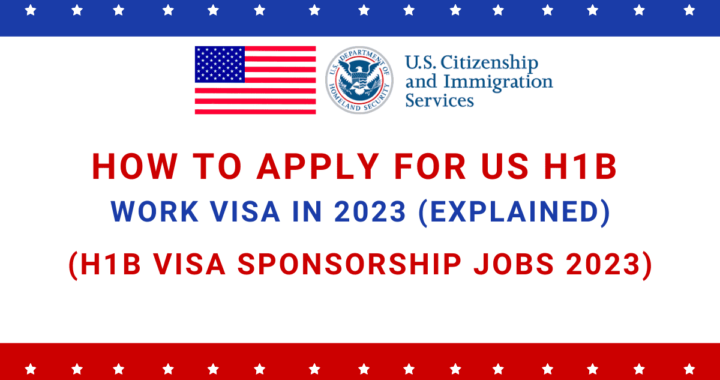Launch Your Dreams: A Guide to Canada’s Start-Up Visa Program for Global Entrepreneurs

Canada's Start-Up Visa Program for Global Entrepreneurs
Canada’s Start-Up Visa Program (SUV) beckons ambitious immigrant entrepreneurs with the promise of permanent residency in exchange for establishing an innovative business. But before you pack your bags, here’s a comprehensive breakdown of the program to help you navigate the process, understand costs, and assess potential risks.
Who Qualifies for Canada’s Start Up Visa Program?
The SUV program prioritizes businesses that are:
Innovative:
Your venture should possess a unique concept with high growth potential.
Job-Creating:
Demonstrate a plan to create jobs for Canadians.
Globally Competitive:
Show your business can compete on the international stage.
Skills required for the Key Players:
As an Entrepreneur, You, or your team of up to five founders, must possess the skills and experience to run the business.
Designated Organization (DO):
Secure a crucial Letter of Support from a designated angel investor group, venture capital firm, or incubator with a proven track record of supporting successful startups.
The Process to apply for Canada’s Start up Visa Program (SUV) :
Planning and Preparation:
Refine your business plan, secure funding, and identify potential DOs.
Application Submission:
Submit a comprehensive application package to IRCC, including your business plan, DO Letter of Support, and proof of funds to settle in Canada. Processing times can vary, so be prepared to wait.
You can, Optionally, apply for Work Permit:
While your application is reviewed, you may be eligible for a work permit to begin working in Canada.
Landing with Permanent Resident Status:
Once approved, you’ll receive permanent resident status, allowing you to live and work freely in Canada.
Costs to Consider to apply for Canada’s Start Up Visa Program:
Application Fees: Government fees associated with submitting the application.
Professional Services: Consider seeking legal and immigration consultant support for the application process.
Settlement Funds: You’ll need to demonstrate sufficient funds to support yourself and any dependents upon arrival.
Business Costs: Factor in ongoing operational expenses to get your venture off the ground.
Potential Risks:
- Competition: Securing a Designated Organization (DO)’s support can be highly competitive, requiring a strong business case.
- Funding Challenges: Even with a DO’s backing, securing additional funding can be a hurdle.
- Market Validation: There’s always a risk that your business idea may not gain traction in the Canadian market.
Mitigating the Risks involved in getting Start Up Visa:
- Network and Research: Actively connect with potential DOs and research their investment preferences.
- Build a Strong Team: Surround yourself with talented individuals who complement your skillset.
- Market Research: Thoroughly research the Canadian market to ensure your product or service addresses a genuine need.
Step 1: Planning and Preparation
Refine Your Business Plan: This is your roadmap to success. Clearly define your business concept, target market, competitive advantage, and financial projections.
Secure Funding: Demonstrate sufficient financial backing to establish and operate your business in Canada. This could include personal savings, investments, or commitments from banks or venture debt providers.
Identify Potential Designated Organizations (DOs): Research angel investor groups, venture capital firms, and business incubators with a proven record of supporting successful startups. Look for DOs aligned with your industry and investment focus.
Pro Tip: Network with entrepreneurs, attend industry events, and connect with DOs directly to understand their investment criteria and application preferences.
Step 2: Application Submission
Gather Required Documents: Prepare a comprehensive application package following IRCC’s guidelines. Key documents include:
A detailed business plan outlining your venture, market opportunity, marketing strategy, financial projections, and management team.
A Letter of Support from a designated organization, confirming their commitment to providing financial and mentorship support to your business.
Proof of language proficiency in English or French by meeting the minimum Canadian Language Benchmark (CLB) score.
Educational credentials and relevant work experience documents.
Proof of sufficient settlement funds to support yourself and any dependents upon arrival in Canada.
Submit Your Application: File your application electronically through the IRCC website. Be prepared to pay the associated government processing fees.
Processing Times: Be patient! IRCC meticulously evaluates applications, and processing timelines can vary depending on case complexity and current workload.
Step 3: Work Permit (Optional)
Open a Business in Canada: While your SUV application is being processed, consider incorporating your business in Canada to demonstrate initiative and commitment.
Apply for a Work Permit: This allows you to start working in Canada and potentially advance your business ventures while you await the SUV decision. Eligibility for a work permit depends on your specific circumstances, so consult with an immigration lawyer for guidance.
Step 4: Landing Permanent Residence
Application Approval: If successful, IRCC will issue a Confirmation of Permanent Residence (COPR) document. This allows you to apply for a Permanent Resident Visa (PRV) and officially immigrate to Canada.
Landing in Canada: Once you receive your PRV and enter Canada, you’ll be required to meet residency obligations, such as spending a certain amount of time physically present in Canada each year.
The Rewards of Immigtaing under Start Up Visa Program:
For those who qualify, the SUV program offers an incredible opportunity. You’ll gain access to a supportive ecosystem for entrepreneurs, a talented workforce, and the chance to build a successful business in a thriving economy. Canada welcomes innovative minds, and with careful planning and a strong business idea, the SUV program can be your launchpad to a bright future in the Great White North.

 What actions by Trump Government are in store for illegal immigrants in US? What are Challenges to deport illegal immigrants from US?
What actions by Trump Government are in store for illegal immigrants in US? What are Challenges to deport illegal immigrants from US?  What are changes in Canada Start up Visa Program and Self-Employed Persons Program. How would it affect the potential immigrants to Canada?
What are changes in Canada Start up Visa Program and Self-Employed Persons Program. How would it affect the potential immigrants to Canada?  Options for Immigrating to Canada as a Healthcare Worker- Best Canadian Provinces that offer good salaries
Options for Immigrating to Canada as a Healthcare Worker- Best Canadian Provinces that offer good salaries  Immigrating to Quebec province Canada- Professions in demand with salaries- Racial Discrimination
Immigrating to Quebec province Canada- Professions in demand with salaries- Racial Discrimination  H1B Visa- Eligibility Requirements- its Duration- Process to apply and Professions in demand
H1B Visa- Eligibility Requirements- its Duration- Process to apply and Professions in demand  Who can sponsor someone for Canada Visa and eligibility requirements to get sponsored for Canada Visa
Who can sponsor someone for Canada Visa and eligibility requirements to get sponsored for Canada Visa  Recent Changes to Canada’s Work Permit Rules and its impact on Immigrants from India
Recent Changes to Canada’s Work Permit Rules and its impact on Immigrants from India  Applications for UK Immigration witness major decline as the Immigration Laws undergo significant changes
Applications for UK Immigration witness major decline as the Immigration Laws undergo significant changes